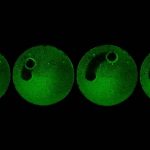
Hematologist – who he is, what ailments he treats?
A hematologist is a doctor who specializes in hematology, the branch of medicine that studies the properties and actions of blood. The tasks of this specialist include the treatment of diseases of the blood and hematopoietic system. Hematology is closely related to other branches of medicine – transfusionology, serology and immunology.
What diseases does a hematologist treat?
Diseases of the blood systemóric and blood is a problem thatóry affects an increasing number of people. For this reason, hematology is one of the most dynamically developing fields of medicine today. People are referred to the doctor of this specialty, whoówho were found to have abnormalities in the blood morphology examination. W¶ród diseaseób treated by a hematologist include anemia and hyperemia, as well as cancers such as leukemia, lymphoma, or multiple myeloma. It is worth bearing in mind that zaróBoth hyperemia and anemia can be a symptom of other conditions, for example, diseases of theób of the gastrointestinal and urinary tract (anemia), or tumoróin the kidneys and central nervous system (hyperemia).
When to go to a hematologist?
A referral to a hematologist is made by the family doctor after the patient’s symptoms are detectedóin, whichóre may indicate a disease of the blood or hematopoietic systemórational, such as pallor of the skinóry, lips and mucous membranes, erosions and necrotic lesions in the mouth, overgrowth of gums, brittleness of nails, hair lossóin, frequent bóle headaches, lethargy, or an excessive tendency to form bruisesóin and hematomaów. A very important symptom of diseasesób hematological diseases is róAlso a disorder in the proportions of componentsóin the blood and blood clotting disorders. Based on the resultsóin morphology, the doctor can not only find iron deficiencies, but also diagnose autoimmune diseases, chronic infection of the body or inflammation.
What tests can be ordered by a hematologist?
After reviewing the patient’s symptoms and blood count results, the hematologist will usually order additional, detailed blood testsólnternal examinations – necessary to make a correct diagnosis. These tests include biochemistry and blood smear. Biochemistry involves the analysis of componentóin plasma, more specifically, levels of creatinine, urea, glucose, electrolyteów, bilirubin and amylase. In turn, a blood smear can diagnose viral, bacterial and fungal infections, as well as bone marrow disorders and hypothyroidism. In someóhematologist may refer the patient for an ultrasound examination, a chest X-ray, and a bone marrow or node biopsyóin the lymph.





